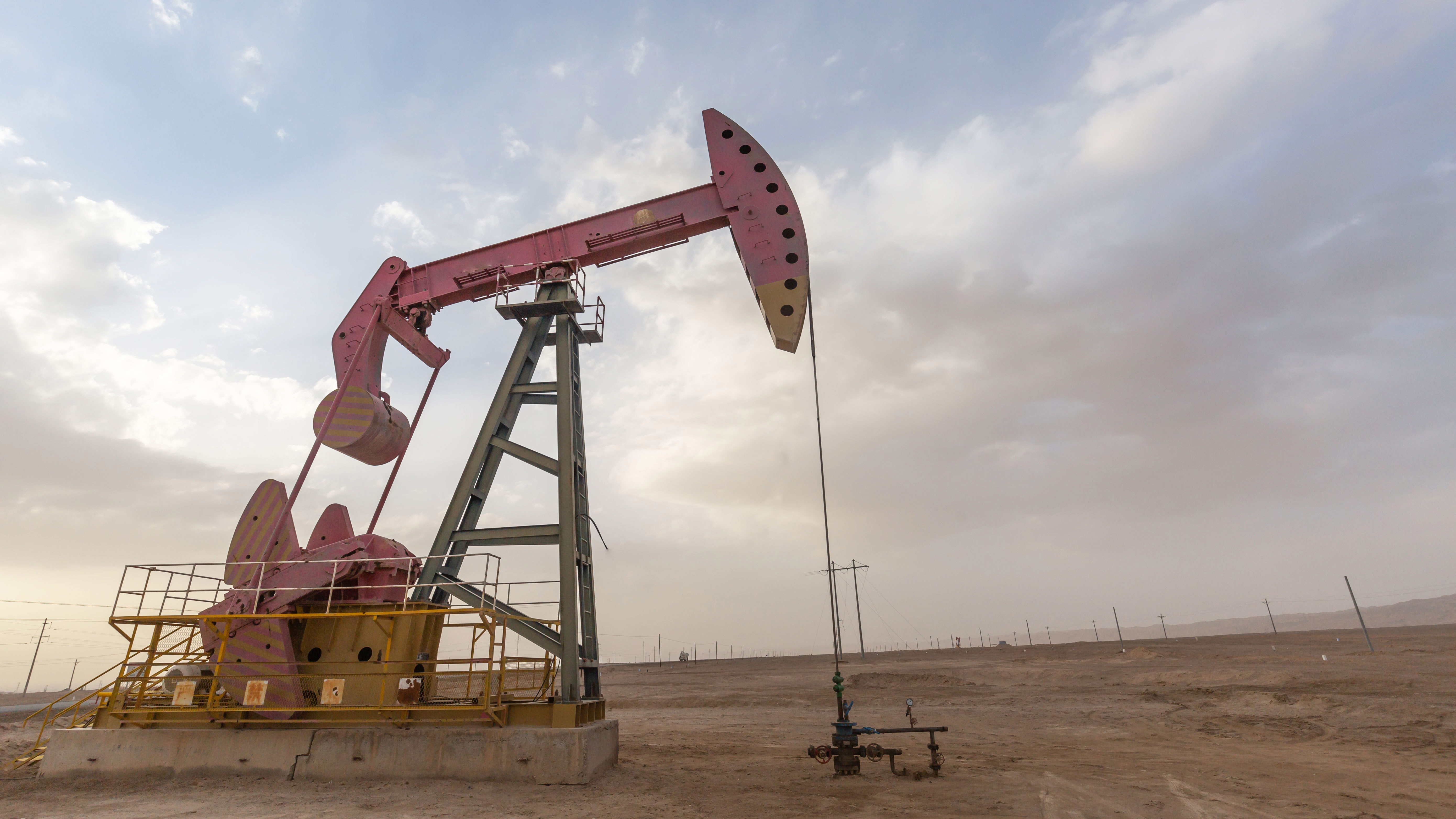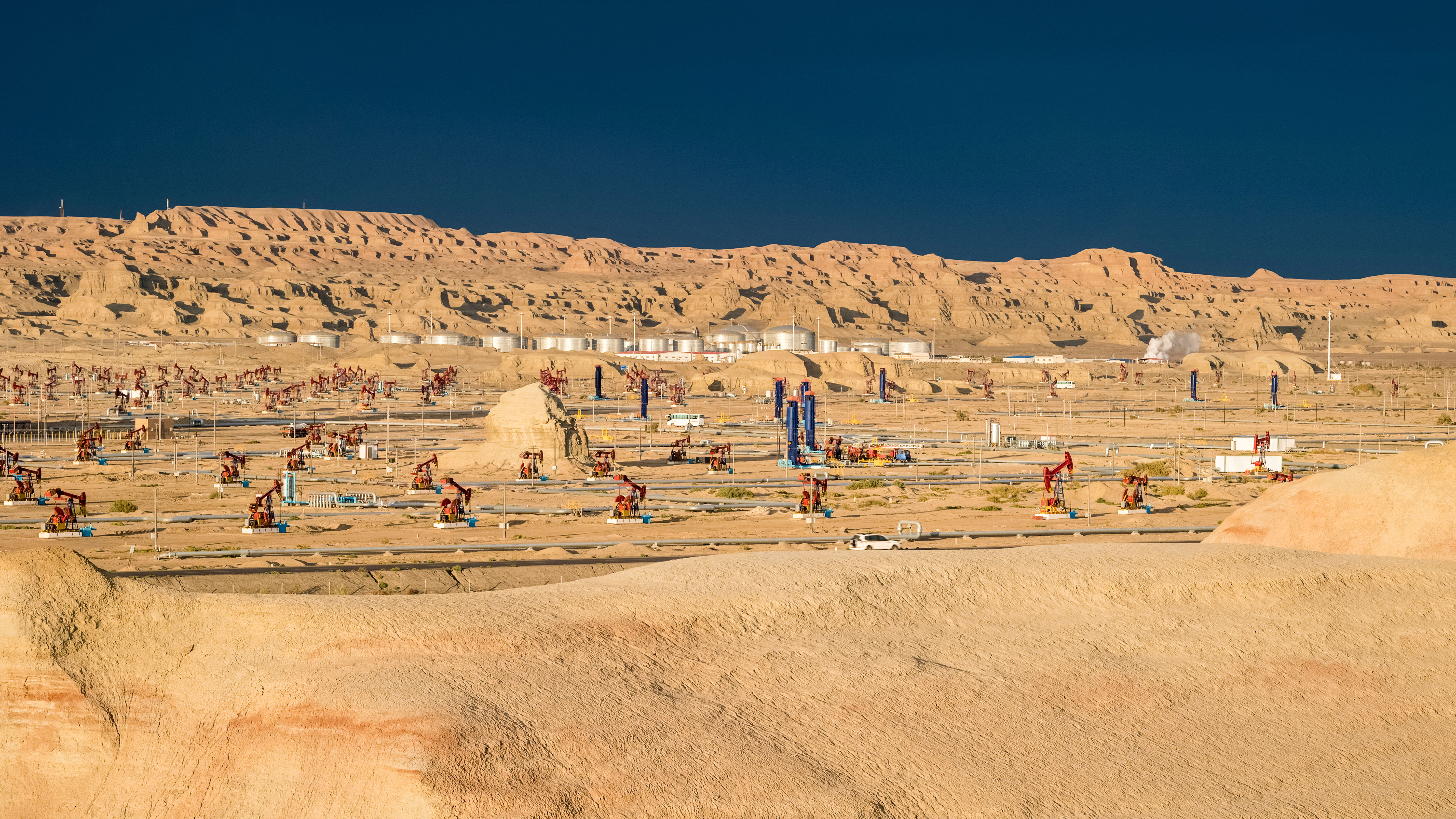Chinese engineers have broken ground on a new super -deep borehole that will burrow far into the Earth's crust as the country steps up its search for natural resources hidden thousands of metres underground.
The hole will eventually reach 10,520 metres into the ground at the Sichuan Basin in southwest China, according to state-run news agency Xinhua.
The region is a major area for gas production and engineers expected to find a natural gas reserve there, the report said.
READ MORE: Three people sitting in cars shot in 'targeted' Sydney attack

The announcement came just weeks after China began drilling another super deep borehole which is slated to extend even further into the Earth with a planned depth of 11,100-metres.
That project is located at the Tarim Basin in China's northwest autonomous region of Xinjiang.
If completed, they would be among two of the deepest human-made boreholes in the world.
However, they would not be deepest.
That record currently lies with the now defunct Kola Superdeep Borehole in north-west Russia, a Soviet-era scientific drilling project that took 20 years to complete and went to 12,262 metres.
These ultradeep holes stretch greater than Mount Everest measuring from top to bottom, which is about 8,800 metres.
Humans have reached the moon but when it comes to exploring the land deep beneath our feet, we have only scratched the surface of our planet.
Drilling deep allows scientists to learn more about how the Earth was formed with the crust acting like a geological timeline of or world's formation.
But there are also strong commercial incentives – tapping into potentially lucrative energy reserves buried deep below.
Both the companies involved in the Chinese boreholes are major state-owned oil conglomerates.
The most recent project at Sichuan Basin is operated by PetroChina Southwest Oil and Gasfield Co, a subsidiary of China National Petroleum Corporation, one of the biggest state-owned energy companies in China, according to Xinhua.
READ MORE: Wintry blast looming for two Aussie states

Painting it as a move of "great significance," the state news outlet said the effort is aimed at exploring deeply buried resources while "promoting the progress of the core technology and equipment capability of China's oil and gas engineering."
"The drilling will further reveal the secrets of evolution under the Sinian formation," it said, referring to the way in which rocks are arranged in the Sichuan Basin.
Chen Lili, deputy chief engineer of PetroChina Southwest Oil, told the state news outlet that they expected a raft of "world-class challenges" to overcome during the drilling process.
Unveiling the Xinjiang project previously, Xinhua dubbed it a "telescope" into the deepest end of the earth, with its 2,000-tonne design tasked to penetrate more than 10 continental strata.
It said the drilling setup can withstand 200 degree celsius and forces 1,700 times greater than that of atmospheric pressure.
In May, Sinopec Corp said it had struck sizeable oil and gas flows in an exploration well in the Tarim basin at a depth of 8,591 metres below the surface, Reuters reported.
China, the world's second-largest economy and the world's biggest carbon emitter, has huge energy needs. Chinese leader Xi Jinping has declared future energy security as a national security priority.
China has become a global leader in renewable energy – it is on track to double its wind and solar energy capacity and hit its 2030 clean energy targets five years early, according to a recent report.
But it is also the world's biggest producer of planet-heating pollution and is ramping up coal production.
The US is the world's second-biggest carbon emitter.
US climate envoy John Kerry met with Chinese officials in Beijing this week and called for faster action to confront the climate crisis.
Xi did not meet with Kerry this week. But while the US climate envoy was visiting, Xi told a national conference on environmental protection that China's commitment to its duel carbon goals – reaching a carbon peak by 2030 and carbon neutrality by 2060 – is "unwavering," according to state news agency Xinhua.
"But the path, method, pace and intensity to achieve this goal should and must be determined by ourselves, and will never be influenced by others," he said.
Sign up here to receive our daily newsletters and breaking news alerts, sent straight to your inbox.
